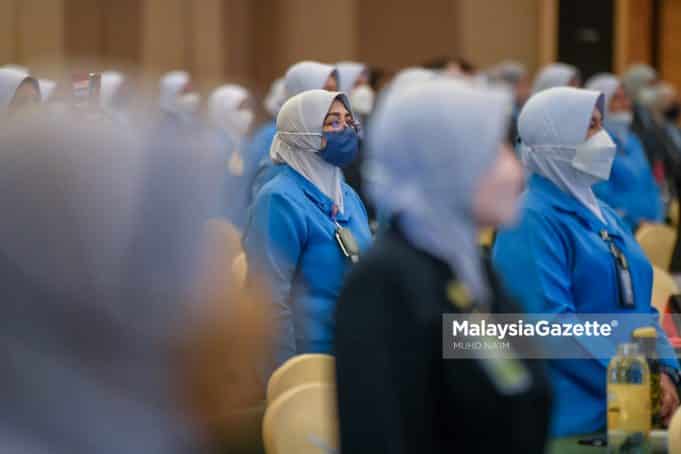EACH year, on May 12, the world commemorates International Nurses Day, recognising the vital contributions of nurses to global health. In 2025, the International Council of Nurses (ICN) announced the theme “Our Nurses. Our Future. Caring for Nurses Strengthens Economies”—a timely and urgent reminder of the fundamental role nurses play in every healthcare system.
This theme, inspired by ICN’s report “The Economic Power of Care”, underscores the inextricable link between the well-being of nurses and the stability of national economies. Investing in the nursing workforce is no longer a matter of professional advocacy—it is a national imperative.
In Malaysia, the nursing profession is facing a growing crisis. A shortage of skilled personnel, driven by high resignation rates, rising workloads, and outward migration, has left the healthcare system strained and increasingly vulnerable.
Experienced nurses continue to leave for more attractive opportunities abroad, while many others cite burnout, emotional fatigue, and financial insecurity as reasons for leaving the profession entirely. Those who remain are under immense pressure, often managing disproportionate patient loads with limited support.
Yet, despite these challenges, nurses continue to demonstrate exceptional dedication. Their commitment to care is rooted in a deep passion for the profession—a passion that, while admirable, cannot sustain a workforce or a healthcare system alone.
“Nurses are not asking for luxury—they are asking for fairness, dignity, and the chance to support their families while caring for ours.” Love for the job is not a substitute for financial security.
The reality is that many Malaysian nurses are not adequately compensated for the complexity, risks, and demands of their work.
Findings from my recent studies reveal that low wages, inadequate benefits, and poor working conditions are among the primary reasons why nurses choose to leave. When experienced nurses migrate to other countries and when capable individuals turn away from the profession, the entire healthcare system suffers.
Malaysia must take swift and concrete action to address this. Ensuring competitive, fair, and sustainable compensation for nurses is not only an ethical obligation—it is a strategic investment in national healthcare resilience.
Regional examples provide clear evidence of what works. In Singapore, government-led initiatives such as the Angels Scheme, introduced in 2024, offer structured financial incentives to attract and retain nurses in the public sector.
Thailand has also committed to improving nurse salaries and working conditions, with strong government support. Both countries demonstrate how targeted investment can stabilise the workforce and strengthen healthcare delivery outcomes.
Malaysia can adopt similar measures, tailored to its healthcare landscape. Structured salary scales that reward experience and qualifications, performance-linked incentives, and regular adjustments to reflect the cost of living would offer nurses greater financial stability.
Regarding the proposed increase in working hours from 42 to 45 hours per week, considering adjustments, such as ensuring nurses receive two days off per week to support their well-being. Additionally, any hours beyond the 45-hour threshold should be compensated through overtime pay, which would help manage workforce shortages during peak periods.
Policies that support work-life balance, such as flexible scheduling, weekend leave, and childcare support, should not be overlooked. These initiatives would not only help nurses remain in the profession but also enhance their capacity to provide high-quality care.
Addressing the shortage of nurses requires a whole-of-system approach, not just focusing on individual aspects but considering the entire landscape. Strong collaboration between government bodies, healthcare institutions, and professional nursing associations is crucial for implementing long-term reforms that ensure nurses feel supported, valued, and protected —because to care for a tree, we must care for the forest as a whole.
The time to act is NOW. Nurses are the backbone of our healthcare system, and their well-being is fundamentally tied to the health of every Malaysian.
The message of this year’s Nurses Day theme—“Our Nurses. Our Future. Caring for Nurses Strengthens Economies”—must resonate beyond celebration and reflection. It must translate into policies that affirm, through action, the nation’s respect and commitment to its nursing workforce.
Nurses are not asking for privilege—they are asking for fairness. As a society, and as a nation, we must ensure that those who care for us are being cared for too.
By: Prof. Dr. Soh Kim Lam
Department of Nursing,
Faculty of Medicine and Health Sciences,
Universiti Putra Malaysia

















